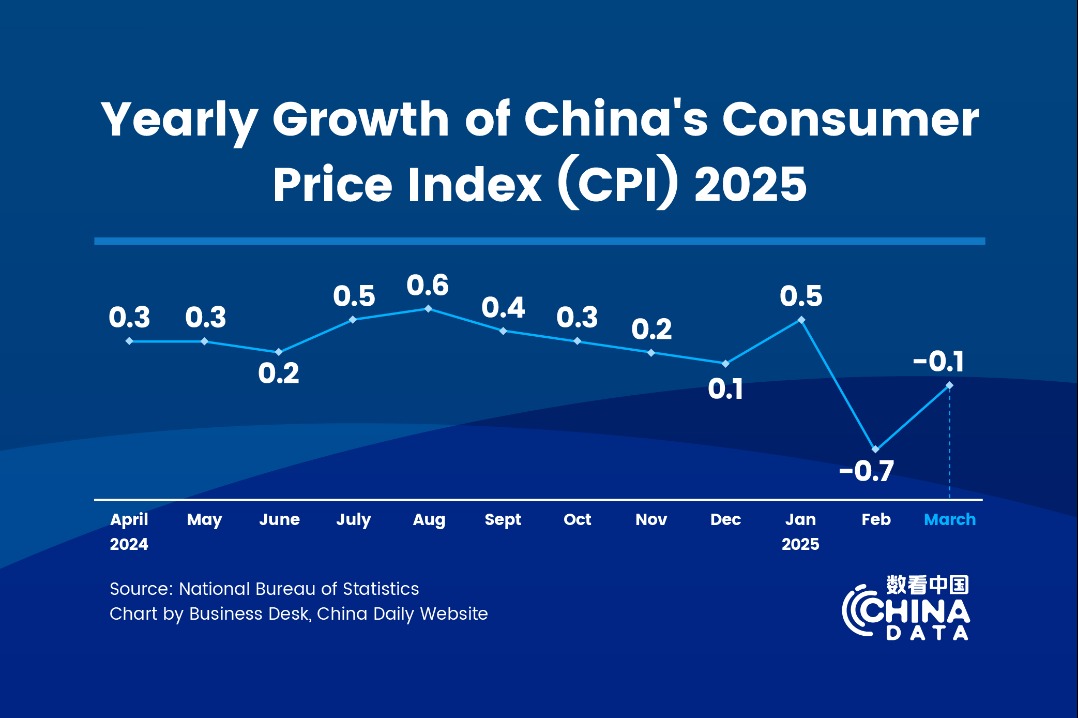Consumption, innovation to boost economy
Shorter stimulus, structural reforms highlighted for long-term development


As China navigates a shifting global trade landscape and aims to sustain its economic momentum, the country's growth potential increasingly hinges on unlocking domestic consumption and accelerating structural reforms, said Denis Depoux, global managing director of consultancy Roland Berger.
With rising protectionist sentiment and the threat of a trade war, this year China may struggle to achieve a similar export performance as it did in 2024. And that shortfall will have to be made up by stronger domestic demand — which requires restoring consumer confidence and implementing structural reforms, Depoux said.

"It means that this has to be offset by more domestic demand, and that's the focus of the government on boosting domestic consumption, but that doesn't come overnight," he said during a recent exclusive interview with China Daily.
While recent stimulus measures may provide a short-term boost, Depoux stressed that deeper structural reforms are necessary to shift consumer behavior and reduce excessive household savings.
"In order to change the fundamental structure of consumption, people need to simply get more income. They need to be more confident so that they don't save so much to face a life accident," he said.
"China is trying something new — a more proactive fiscal policy with a greater focus on consumption," said Robin Xing, chief China economist at Morgan Stanley. About one-fourth of this year's increment in augmented fiscal deficit, worth some 2 trillion yuan ($273 billion), is to be spent in consumption-related areas such as subsidizing an expanded consumer trade-in program.
This year, China is putting boosting consumption and fostering innovation-driven growth as key priorities as it seeks to cushion the impact of the United States' tariff hikes.
Depoux also pointed to China's strengths in innovation, especially with blossoming emerging areas such as artificial intelligence.
"What we still need to see is full adoption of AI technology, mainly in manufacturing. Now, I think the next frontier is to make use of data that is generated by machine tools by production lines, to improve their quality, to improve their time to market and to be able to do on-demand production."
"The next China is a very different China," he said. "It is becoming an innovation-driven economy, transforming rapidly."
Despite geopolitical uncertainties, Depoux said China remains a key destination for global investors. "Multinational companies are still in China, because it's a super good manufacturing powerhouse," he said. "It has changed in nature. It's not a low-cost manufacturing hub — it's a highly sophisticated, high added-value hub."




































